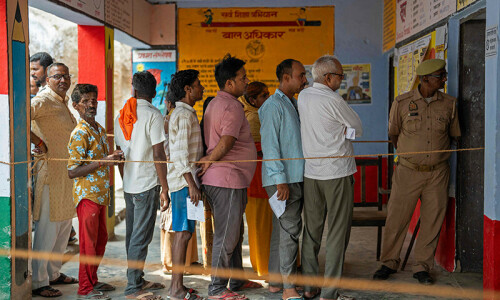WELLINGTON: Delhi's top diplomat in New Zealand said Saturday he would return to India but denied that his relocation was linked to accusations that his wife had assaulted a staff member.
Police said a member of staff at the Indian diplomatic mission alleged he was assaulted by Sharmila Thapar, the wife of High Commissioner Ravi Thapar, but declined to lay a formal complaint. A removal van was at Thapar's Wellington home on Saturday morning where Sharmila Thapar refused to answer questions.
However, Ravi Thapar denied any suggestions a staff member had been assaulted and said he was returning to India to care for his mother.
“I'm going but to take care of my mum because my dad passed away last year. I can't keep up 13,000 kilometres away just talking to her on the phone,” he told reporters.
He added his wife continued to suffer the effects of a car accident, sometimes wore a neck support, and would not have assaulted anyone.
“It's very, very absurd that a lady of 50 plus with these medical issues could confront or could even think of or even conceptualise assaulting a physically able-bodied person of about 26 years old,” he told Fairfax Media.
A New Zealand foreign ministry (MFAT) spokesman confirmed to the New Zealand Herald that they were aware the high commissioner — the equivalent of ambassador in Commonwealth countries — was leaving.
“MFAT was aware a staff member raised with New Zealand police concerns about his treatment in the high commission,” the spokesman said. "MFAT has been advised the individual concerned elected not to take the matter further. That staff member had independent legal representation and decided to return to India."
New Zealand officials said further questions about Thapar's departure should be directed to India's ministry of external affairs.
The staff member was taken to the Wellington police station in early May when he was found wandering the streets in a distressed state after walking nearly 20 kilometres from the high commission. Thapar also rejected allegations that the man had been kept in slavery, saying he was free to move about at all times.
“He was the custodian of the house, he had our implicit and complete trust. He had the keys. Everything was open,” Thapar said. "The question of slavery doesn't arise. That means someone who is not allowed to leave. Not at all. He had adequate, and umpteen dozens of opportunities (to leave)."














































